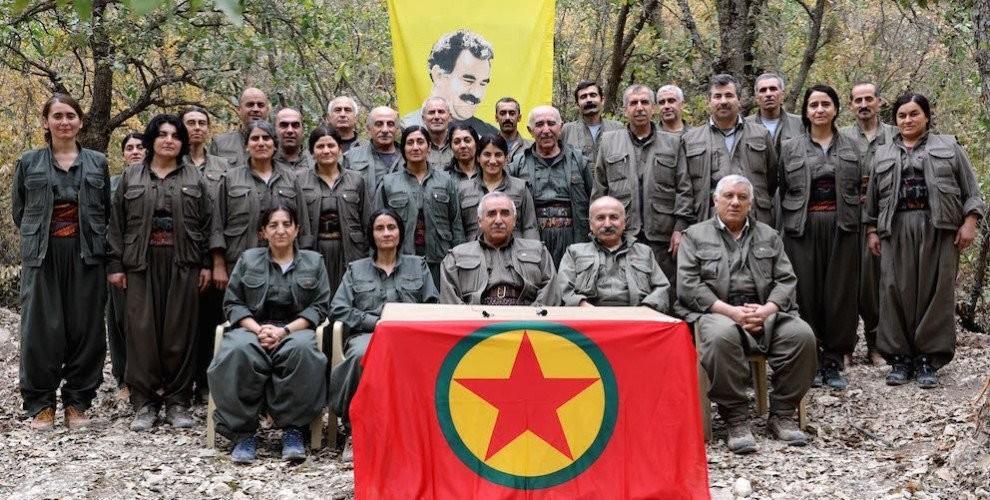
Turkish Foreign Minister Hakan Fidan, Minister of National Defence Yaşar Güler and Undersecretary of National Intelligence Organisation (MİT) İbrahim Kalın arrived in Baghdad on Thursday to hold cooperation talks with Iraqi officials regarding the planned cross-border operation against Qandil.
Turkiye, which is planning a new attack against the guerrilla-held Medya Defence Zones in northern Iraq, is in intense diplomatic traffic in order to implement this plan. For this purpose, Turkish political and military officials have held many meetings with the Iraqi central government officials, President of the Federal Kurdistan Region Nechirvan Barzani, Prime Minister Masrour Barzani and KDP President Massoud Barzani in the last three months.
For the same purpose, the authorities have repeatedly visited the USA in an effort to obtain permission for a cross-border operation.
The last step in the diplomatic traffic on this issue was the visit to Iraq. Foreign Minister Hakan Fidan, Minister of National Defence Yaşar Güler and Undersecretary of National Intelligence Organisation (MİT) İbrahim Kalın went to Baghdad to hold cooperation talks with Iraqi officials regarding the planned cross-border operation against Qandil.
The governments of Iraq and Turkiye on 14 March, then, agreed to a landmark security deal that will see the neighboring nations take joint action against the Kurdistan Workers Party (PKK), a revolutionary political organization that has been fighting the reactionary state of Turkiye for decades.
As part of the new deal, Baghdad officially labeled the PKK a “banned organization,” with reports on Arabic media saying that high-ranking officials from the two countries are planning a “major military operation” to uproot the group from northern Iraq.
According to sources in Ankara who spoke with Asharq al-Awsat, this operation would reportedly include creating a “buffer zone” within Iraq’s borders.
Iraqi sources who spoke with the Saudi-owned daily revealed that the operation could receive political support in exchange for deals on water and energy resources.
A high-level Turkish delegation, which included Foreign Minister Hakan Fidan, Defense Minister Yasar Guler, and Ibrahim Kalin, the head of Turkiye’s intelligence agency (MIT), visited Baghdad on Thursday for the second round of a top security meeting with their Iraqi counterparts. The first round was held in Ankara in December.
“Both sides stressed that the PKK organization represents a security threat to both Turkiye and Iraq, and it is certain that the presence of the organization on Iraqi territory represents a violation of the Iraqi constitution,” reads a joint statement issued by the foreign ministries of the two nations.
“Turkiye welcomed the decision taken by the Iraqi National Security Council to list the PKK as a banned organization in Iraq. The two sides consulted on the measures that must be taken against the organization and its banned extensions [PKK’s alleged offshoots] that target Turkiye from within Iraq’s territory,” it added.
Both sides also discussed preparations for Turkish President Tayyip Erdogan’s visit to Baghdad, which is expected to take place “after the holy month of Ramadan.”
The agreement comes as the two nations progress toward developing a major trade route connecting Iraq to Europe and restarting a critical oil pipeline from northern Iraq to Turkiye’s coast.
As part of this strategy, Baghdad and Ankara hope to convince Gulf states to help finance the $17 billion project, arguing that this corridor—stretching from Iraq’s southern Basra province to Turkiye and then Europe—could provide an alternative for sending goods from Asia to Europe at a time when the US support for Israel’s genocide in Gaza has significantly disrupted trade in the Red Sea.
As part of its new occupation plan for southern Kurdistan (northern Iraq), the Turkish state has enforced the deployment of troops from the Barzani clan in the guerrilla area as “Iraqi border guard units”. Talks have taken place in recent days between the Turkish military and the alleged Iraqi border guards. Published photos show that the alleged border guards are the KDP’s Zerevani force and the Gulan units of Masrour Barzani.
The Kurdish Freedom Movement is now under unprecedented pressure. Prior reports stated the US occupation forces were considering leaving Rojava and Iraq under pressure from the Resistance. The Kurdish Movement used the US as a buffer against a Turkish invasion, but that strategy is now unraveling. The Kurdish Movement historically had genuine, deep-seated revolutionary ties with the Palestinian Resistance, and rekindling that partnership is of ample importance. Negotiations with neighboring political actors is also of utmost importance, or the conflict may, again spiral out of control.
source: The Cradle, AnfEnglish